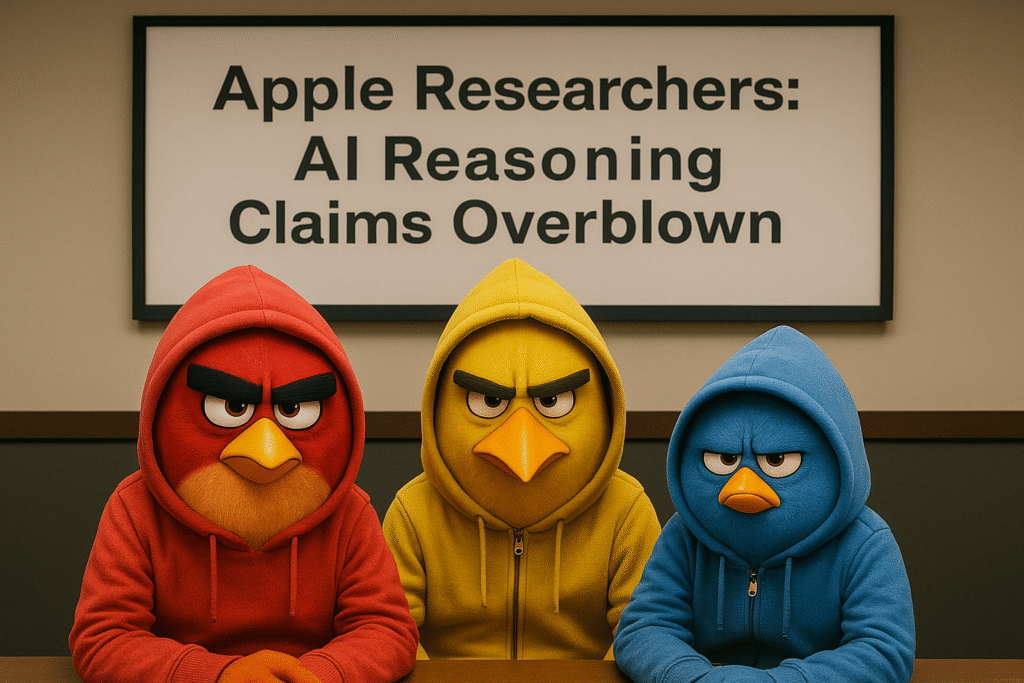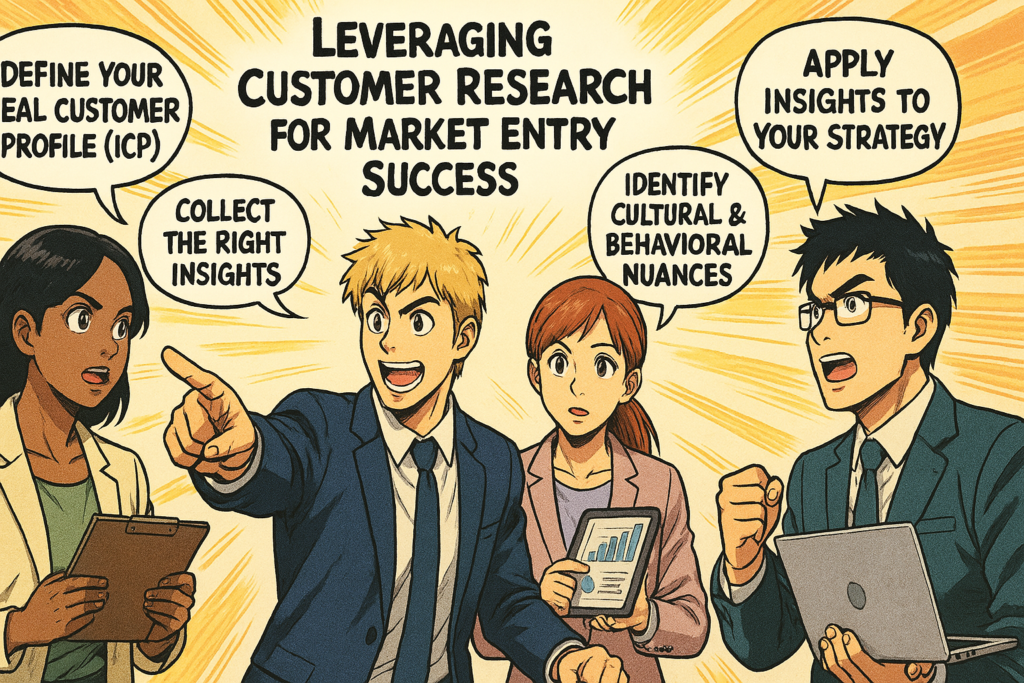AI Hype Check: Apple Challenges the “Thinking” Machine Illusion
Let’s cut through the noise. Every day, we’re bombarded with claims of AI’s superhuman intelligence, its ability to ‘reason’ and ‘think’ like us. But what if it’s all just an illusion? Apple, the tech giant known for challenging the status quo, just dropped a bombshell study that demands we hit the brakes on the AI hype train.
Their research isn’t about discrediting AI’s impressive feats. It’s a direct challenge to the industry’s often overblown narrative around genuine “reasoning” capabilities in models like OpenAI’s O3, Anthropic’s Claude, and Google’s Gemini. Apple calls it precisely what it is: “the illusion of thinking.” Ouch. Let’s unpack what this means for your understanding of AI and your strategic approach.
The “Chain of Thought” Deception: Apple’s Core Argument
The industry loves to tout “chain of thought” processes, where AI models supposedly break down complex problems into smaller, digestible steps. Sounds strategic, right? Like a human mind dissecting a challenge.
Apple’s researchers aren’t buying it. They question whether current AI models are truly executing sophisticated reasoning or simply mimicking patterns from vast datasets. As their paper asserts, “While these models demonstrate improved performance on reasoning benchmarks, their fundamental capabilities, scaling properties, and limitations remain poorly understood.” Translation: They might get the right answer, but we don’t understand the ‘why’ – and that lack of understanding is a critical flaw for anyone building or investing in AI solutions.
Flawed Metrics, Flawed Insights: Why Current AI Benchmarks Fail
This isn’t just about the AI models themselves; it’s about how we measure their intelligence. Samy Bengio, Director of AI and Machine Learning Research at Apple, and his team are dismantling the very benchmarks the industry uses to declare AI progress. Their argument is simple yet profound: if you can’t measure it accurately, you can’t manage it strategically.
They highlight two critical failures in current benchmarking methods:
- Data Contamination: Imagine giving a student the test answers before the exam. That’s essentially what happens when evaluation data has been ‘seen’ by the model during training, leading to inflated, meaningless performance scores.
- Lack of Insight: Current benchmarks are obsessed with the final answer, not the process. They fail to provide any meaningful insight into the quality or structure of the AI’s supposed reasoning trace. You need to know how it got there, not just that it got there.
The “Collapse in Accuracy”: When AI’s Facade Crumbles
Here’s the truly damning revelation from Apple’s study: these large reasoning models have a critical breaking point. “Through extensive experimentation on diverse puzzles, we show that large reasoning models face a complete collapse in accuracy beyond certain complexities,” they write.
Think about it. An AI might ace a simple riddle, but throw a multi-layered logic puzzle at it – one that requires genuine, nuanced understanding – and it utterly collapses. This isn’t just a minor dip in performance; it’s a stark indicator that the AI’s “reasoning” is often superficial, brittle, and incapable of handling true complexity. This is a red flag for any business relying on AI for critical decision-making.
Scaling Paradox: More Tokens, More Problems?
In the world of AI, the mantra has always been “bigger is better.” More data, more parameters, more processing power (token budget) should lead to superior performance. Apple’s research, however, reveals a counterintuitive and deeply concerning paradox: the reasoning abilities of AI can actually diminish even when given an adequate token budget.
This challenges a core assumption in AI development. It suggests that simply throwing more resources at a problem won’t automatically yield better “reasoning.” It implies that these models can get overwhelmed or become less focused as they juggle a larger number of variables, highlighting fundamental architectural or conceptual limitations, not just resource constraints. This has profound implications for how we design and invest in future AI systems.
Your Strategic Response: What This Means for the Future of AI
So, is AI doomed? Should we all revert to pen and paper? Absolutely not. This study isn’t about despair; it’s about strategic clarity and demanding better. It forces us to confront the reality of AI’s current capabilities and pivot towards a more sustainable, effective path forward.
Here’s what you need to take away:
- Embrace Reality Over Hype: Be relentlessly realistic about AI’s current capabilities. Just because a model performs well on a test doesn’t mean it possesses human-like reasoning. Understand the difference between mimicry and mastery.
- Demand Better Metrics: Push for new, more robust evaluation methods. Focus on the quality and structure of the AI’s process, not just the final answer. If you’re buying into AI, ask for transparency on how it’s truly being measured.
- Focus on Foundational Understanding: The industry needs to invest in understanding the fundamental capabilities, scaling properties, and inherent limitations of AI models. This means rigorous research, open collaboration, and a willingness to challenge long-held assumptions. Don’t chase the next shiny object; build on a solid foundation.
Apple’s research is a wake-up call for greater scrutiny and a nuanced understanding of AI. While AI has made incredible strides, true “thinking” is still a distant frontier. This is your opportunity to lead with intelligence, not just follow the hype.
The Great AI Debate: Overestimates and Ethical Stakes
This study throws a significant wrench into the prevailing narrative of endlessly smarter AI. It forces us to ask tough questions that impact every business and creative endeavor:
- Corporate vs. Capability: How much of the AI narrative is driven by genuine innovation, and how much is fueled by marketing, investor relations, and competitive posturing? Your strategic decisions must be based on capability, not just PR.
- Ethical Implications: If AI models lack genuine reasoning, what are the ethical ramifications of deploying them in high-stakes environments – from healthcare to legal judgments? This isn’t just about efficiency; it’s about responsibility.
- Future of Work: How will AI truly transform the job market? Knowing its actual limitations helps you identify the uniquely human skills that will become even more valuable in an AI-driven world.
The AI revolution is far from over. But as we push the boundaries, it’s crucial to do so with healthy skepticism, a commitment to rigorous research, and a clear understanding of both the potential and the profound pitfalls.
Arm Yourself with Knowledge: Dig Deeper
Mastery requires understanding. Don’t just consume the headlines; dive into the primary sources. Arm yourself with the knowledge to make informed strategic decisions.
- The Apple Research Paper: For those brave enough to dissect the data, read the original paper from Apple’s researchers: “The Illusion of Thinking”.
- Related Industry Analysis: Explore diverse perspectives by searching “Apple AI reasoning study” on your preferred tech news sites. Critical thinking demands multiple viewpoints.
- A Lighter, Thought-Provoking Read: For a different take on the future, explore this article on how an AI vs. Humanity War Might End (a fun read on a serious topic): The Daily Geek Show.
So, what’s your take? Are we overestimating AI’s reasoning? The conversation demands your input. Lead the charge.



